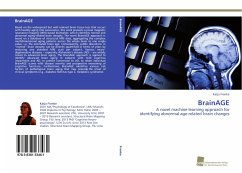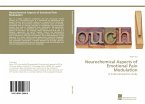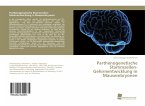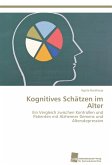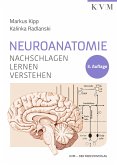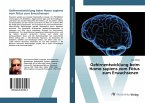Based on the widespread but well-ordered brain tissue loss that occurs with healthy aging into senescence, this work presents a novel magnetic resonance imaging (MRI)-based biomarker, which identifies normal and abnormal aging-related brain atrophy. The novel BrainAGE approach is based on a database of structural MRI data, aggregating the complex, multidimensional aging patterns across the whole brain to one single value, i.e. the estimated brain age. Consequently, subtle deviations in "normal" brain atrophy can be directly quantified in terms of years by analyzing one standard MRI scan per subject. Various neuro-degenerative diseases - especially Alzheimer's disease (AD) - are widely linked to advanced brain aging. The BrainAGE approach is applied to identify advanced brain aging in subjects with mild cognitive impairment and AD, to predict conversion to AD, to relate individual BrainAGE scores with disease severity and prospective worsening of cognitive functions. Furthermore, BrainAGE identifies various risk factors of pathological brain aging that may precede the onset of clinical symptoms (e.g., diabetes mellitus type 2, metabolic syndrome).
Bitte wählen Sie Ihr Anliegen aus.
Rechnungen
Retourenschein anfordern
Bestellstatus
Storno

